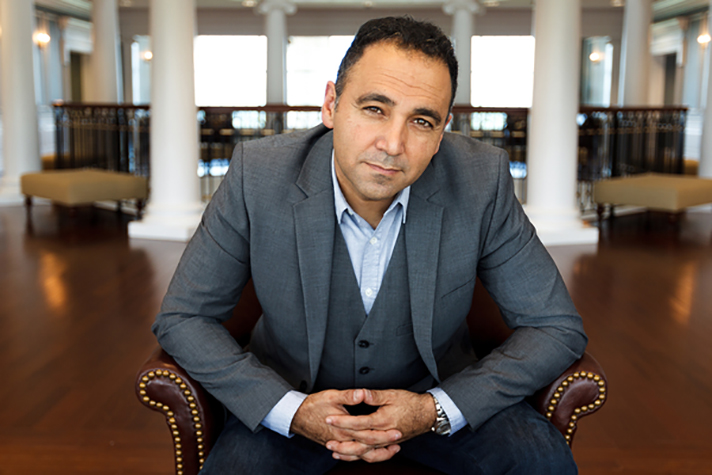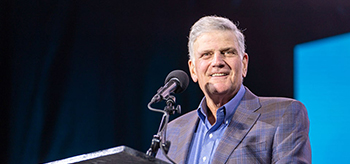
On paper, David Nasser isn’t someone who should be sharing the Gospel of Jesus Christ, let alone a vice president at Liberty University.
As a child, Nasser moved from his native Iran to the United States with his culturally Muslim family during the Iranian revolution.
Several years later, his parents became owners of a restaurant in Birmingham, Alabama. Members of a local church were patrons of the restaurant, and noticed that Nasser’s father was running low on staff. They rolled up their sleeves and began waiting tables.
One of those church members, who happened to be the worship leader at the church, brought Nasser’s father to choir practice. He explained that the Iranian restaurateur needed help and boldly explained that whoever was in choir would be required to sign up for shifts at his restaurant.
This was part of a series of events that led the entire Nasser family to the Lord.
It’s also an example of what Nasser believes is necessary to reach Islamic followers for Christ.
“When we say ‘reaching someone,’ they are imaginary people until we get out of our circles,” he explained. “But once you look outside of that bubble you might find you have a Muslim friend at work, or a Pakistani family that has moved into your neighborhood. And that’s what the people from that Baptist church in Birmingham did for us.”
In these cases, he says, we must find commonality and build relationships.
Nasser explained what this might look like in real life: “If you have Muslim neighbors, take time to learn their names. Maybe they have kids the same age as yours. Start hanging out. Show up and cut their grass. Or show up with a casserole if they have just moved in. When you get to know them, offer to babysit their kids so they can go out on a date. Simply develop a friendship by serving.”
Another important thing to remember when making new Muslim friends, Nasser says, is to be culturally sensitive: “Allow their culture to infiltrate your life. Eat some of their food. Find out what their lives were like back home. Take time to learn about their culture.”
Part of being culturally sensitive, Nasser explained, is self-education.
“We need to familiarize ourselves with their beliefs. An important part of that is to do an ‘MRI’—look into the life of that person. It’s amazing what people will volunteer if you just start asking them questions (about their beliefs),” he said.
“It shows you are interested in them. We should all be willing to be taught.”
Nasser adds that while relationships are foundational in bringing people of Islam into the Kingdom of God, it’s not enough.
We must verbally share the Gospel, but in the right way.
“Some people jump the gun and immediately begin the conversation. But we must first begin with compassion. Find some commonality, then share Christ,” he explained. “That’s what Jesus did. Take, for example, the woman at the well. Before He tells her not to sin, He just comes and sits with her.”
And like Jesus, our motivation to share the Gospel with followers of Islam should not be out of fear, but out of love.
“Wanting to convert someone just because they want to kill you isn’t necessarily a bad motivation, but there is a much greater one. Instead of looking for protection for ourselves, we should be looking for protection for our Muslim friends,” urged Nasser.
“If the end goal is the conversion of the Muslim and not the security of the believer, you’ll get both; the person is no longer your enemy, but your brother or sister.
“Muslims are not the enemy; they are the prize. We are part of the only kingdom where the King of our kingdom died for His enemies. It is us for them, not us against them. We want to see them come to Christ. And we need to maintain a passion for the very people we rise up against, but at the same time rise up for.”
David Nasser is the senior vice president for spiritual development at Liberty University in Lynchburg, Virginia. He has written four books and speaks to more than 500,000 people each year at various events across the country. Learn more about his story.


